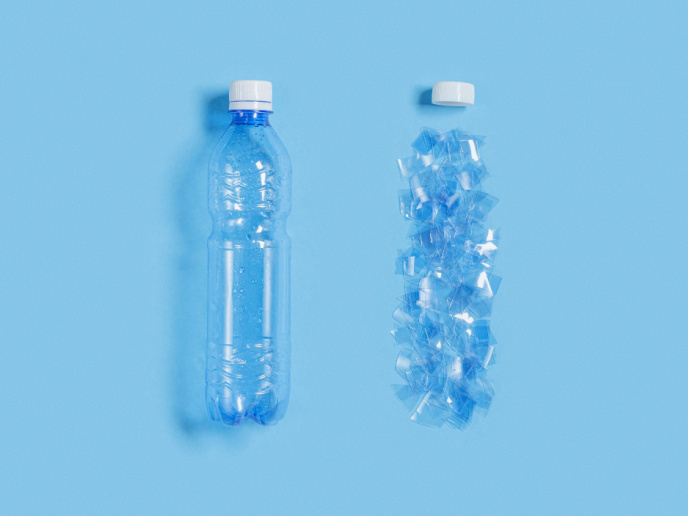Learning from worms for the plastic management of the future
For more than 50 years, the mismanagement of plastic waste has been increasingly menacing to human health and the environment. Today plastics, especially plastic packaging, are being encountered everywhere, although the disadvantages of the current plastics economy are becoming more apparent day by day. If current production and waste management trends continue, by 2050, the estimation of plastic waste in landfills or the natural environment will verge at 12 billion metric tons. Due to the high demand for sustainable plastic production and degradation, important efforts have been made to isolate and identify unique microorganisms capable of utilising plastics as a carbon source. However, despite the empirical evidence achieved, the rates of biodegradation(opens in new window) are still very low. The EU-funded SOLFORPLAS project implemented cutting-edge biology tools, including fermentation and analytical processes, together with state-of-the-art methods in industrial microbiology research, to investigate plastic biodegradation. The research was undertaken with the support of the Marie Skłodowska-Curie Actions(opens in new window) programme. The SOLFORPLAS innovative strategy combines an extruder(opens in new window) and a bioreactor(opens in new window); it integrates physical, chemical and biological treatments, which mimic the whole biodegradation process taking place in worms, as a solution for plastic pollution.
A crucial milestone in the field of plastic recycling
The polymer tested in SOLFORPLAS, polyethylene, was successfully pre-degraded using a physicochemical treatment, which in addition, is environmentally friendly. Because of the treatment applied, the results showed a reduction in the molecular weight and an increase in the carbonyl index (oxidation) of the polymer. Therefore, the long carbon chains were effectively broken down, and the chemical structure was oxidised, enabling their subsequent depolymerisation(opens in new window) by microorganisms. “This is extremely important since no microorganism can degrade untreated polyethylene by itself. The polymer, thus, must be pretreated before being exposed to microorganisms,” explains project coordinator Gemma Buron-Moles. Characterising and optimising the most effective processes for plastic degradation will undoubtedly bear commercial interest for industries. Moreover, the end-product following biodegradation will be biomass in the form of single-cell protein, a green sustainable alternative to supplement human diets or animal feeding (source of proteins in green chemistry), rounding up a process of circular economy.
Bringing sustainable pilot biodegradation closer to the market
“Applied research may lead to patentable knowledge, which may have an important turning back to the industry,” notes Buron-Moles. Further research is needed to exploit the results commercially. The team pinpointed those possible commercial applications, and potential use of their results could include scientific and technological cooperation with green industries for developing a pilot plastic biodegradation line using their extrusion technology and expertise. The industrial interest in the SOLFORPLAS results was also exemplified during the collaboration with Polymer Char in Spain, a company with 30 years of experience in polymer characterisation, who analysed the samples through gel permeation chromatography(opens in new window). Therefore, the commercialisation potential of the project results is very strong and might be very attractive for plastic recycling and reprocessing companies and industries. “Our contribution to solving this major problem is expected to have a major impact, in the form of high-profile publications, attracting media attention and creating social awareness of the problem, including a general perspective of the associated health problems,” states Buron-Moles. The publications derived from SOLFORPLAS are currently in preparation.







